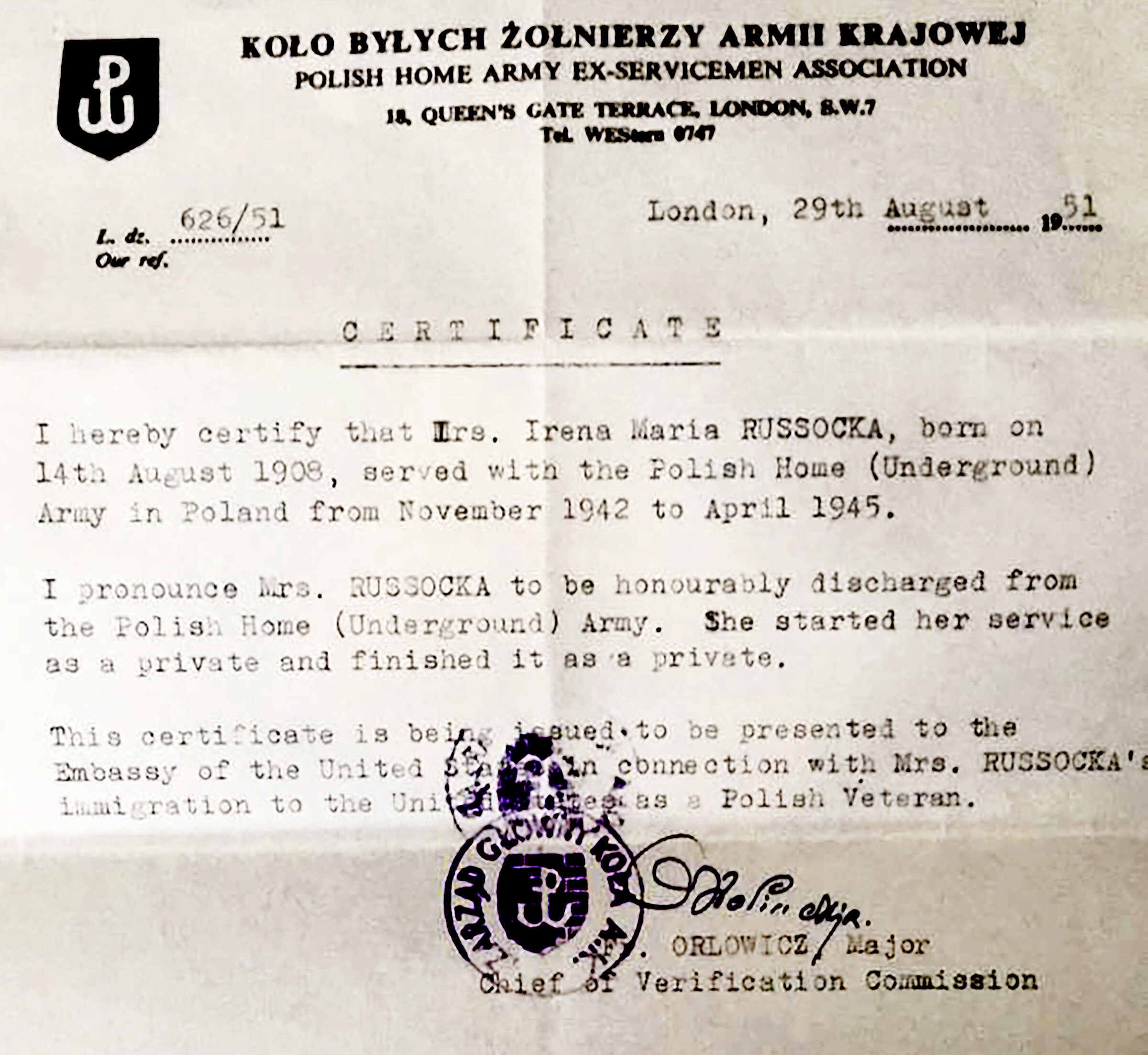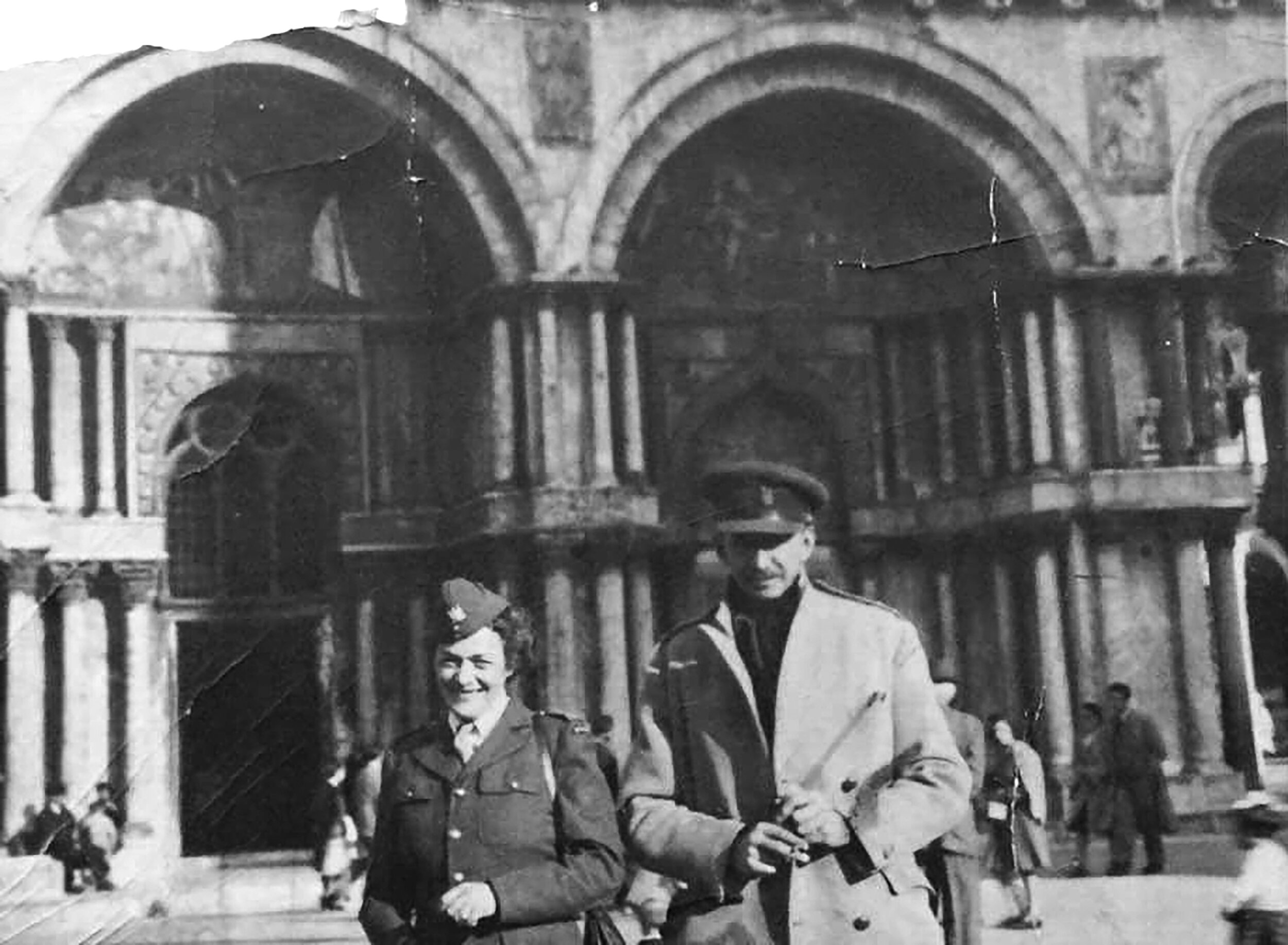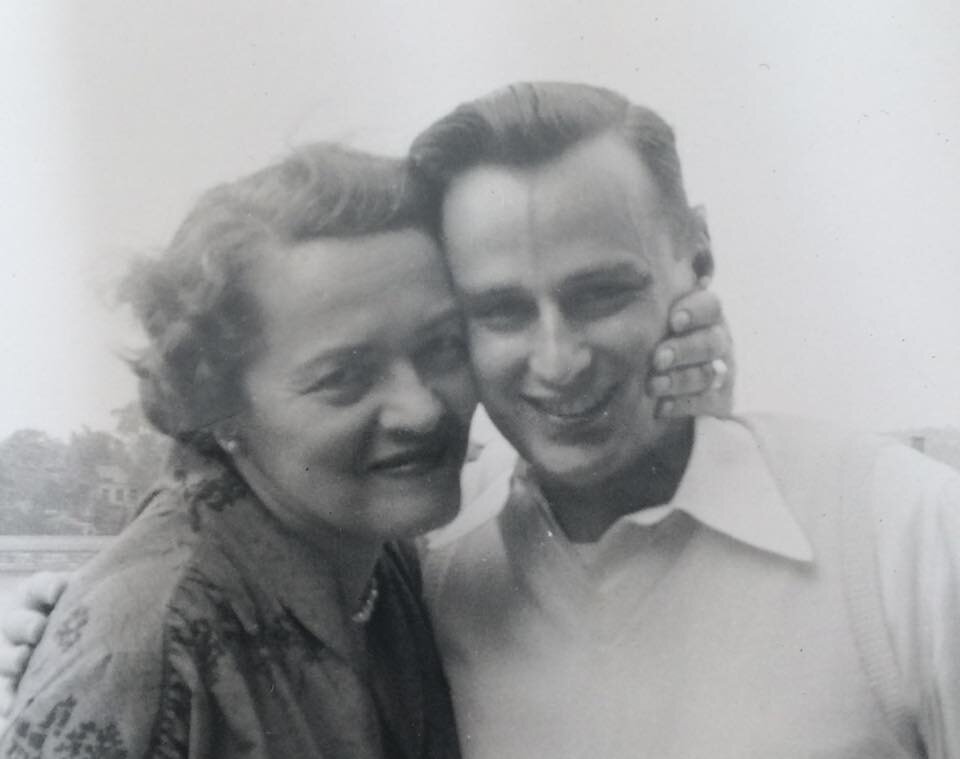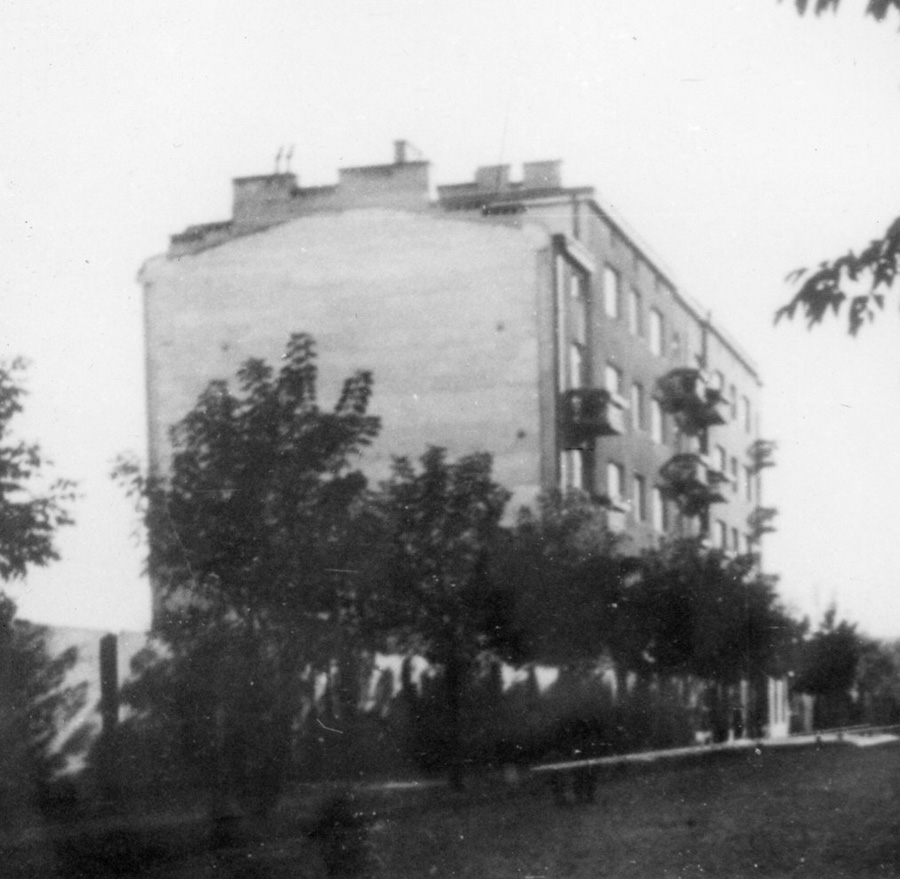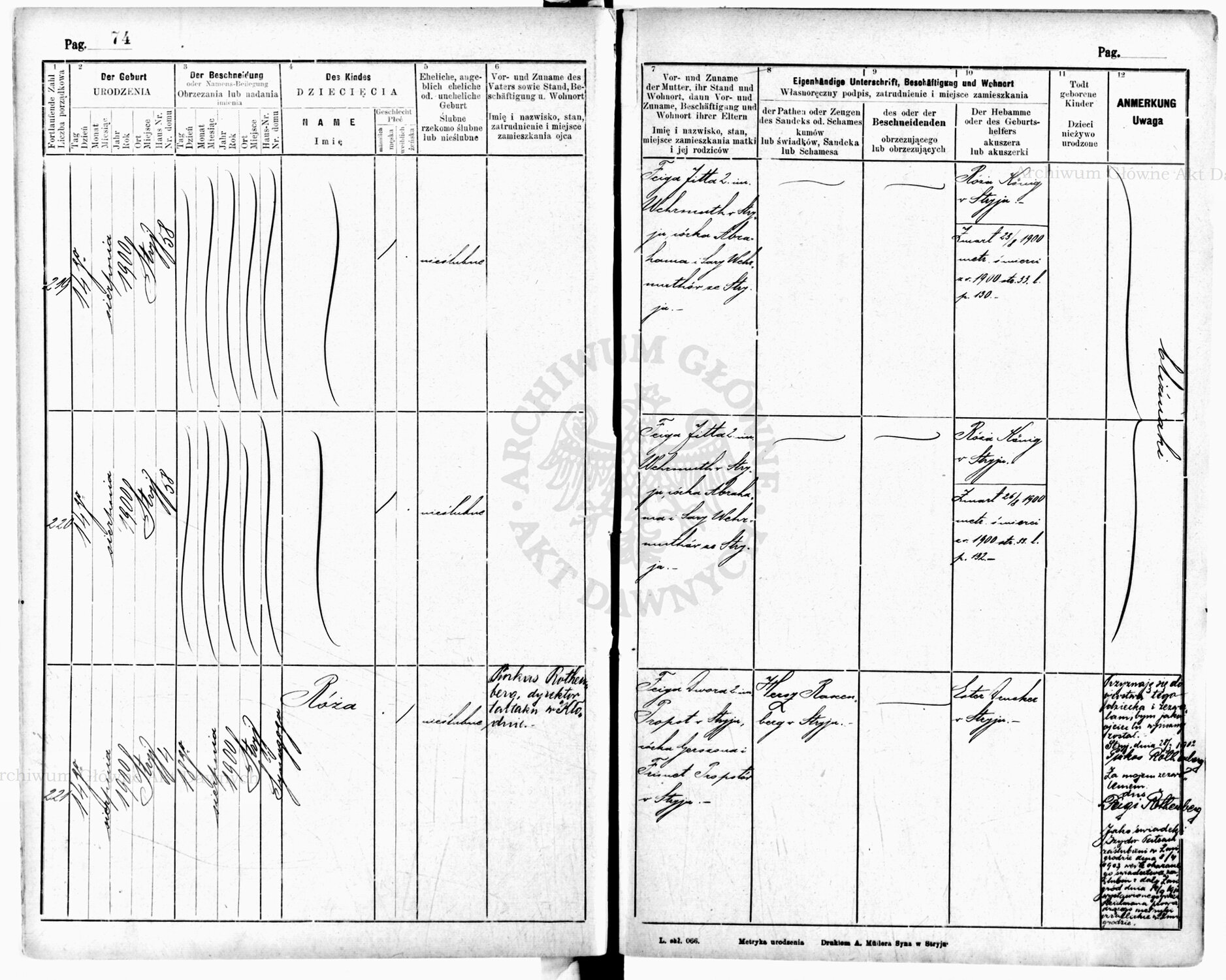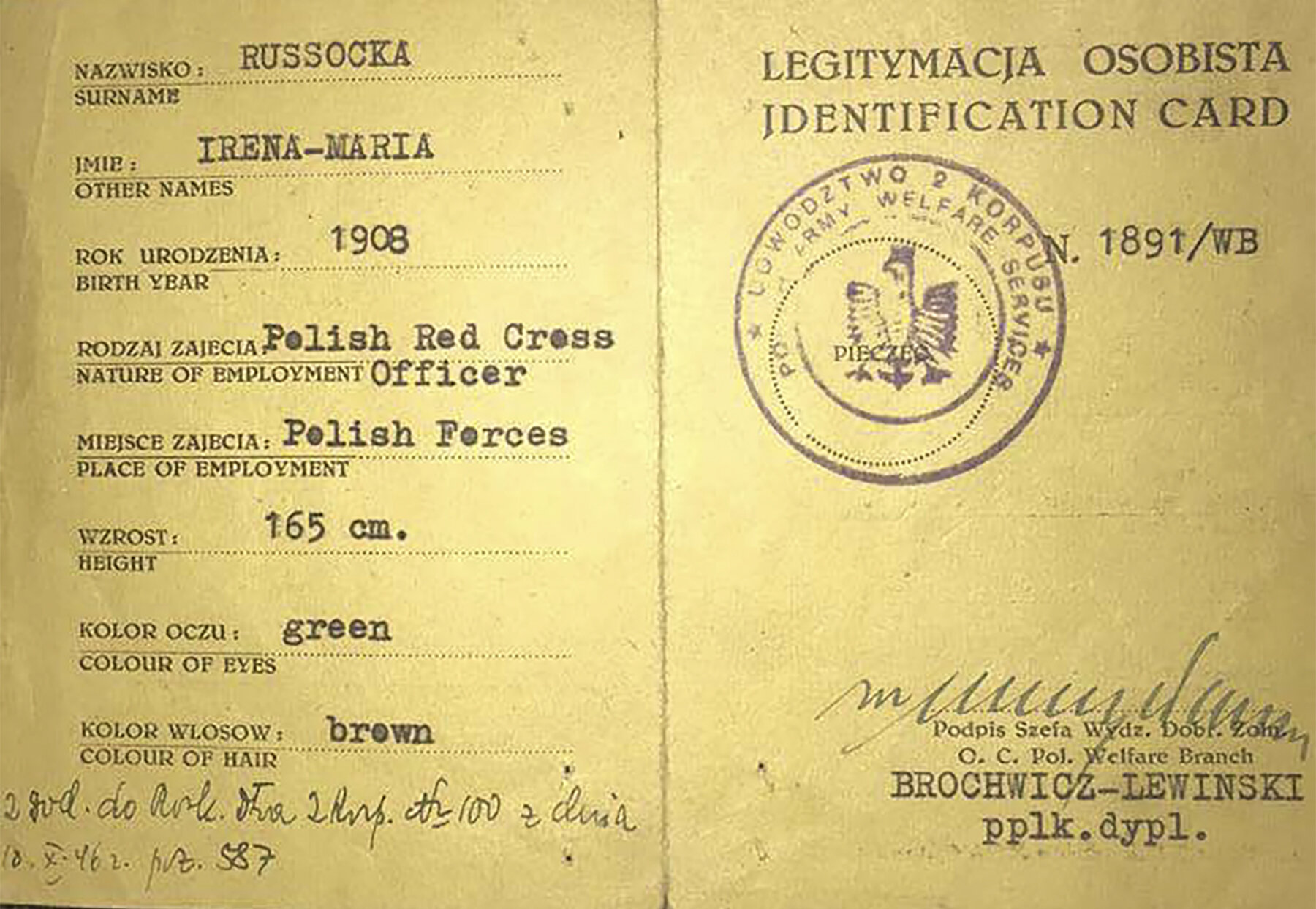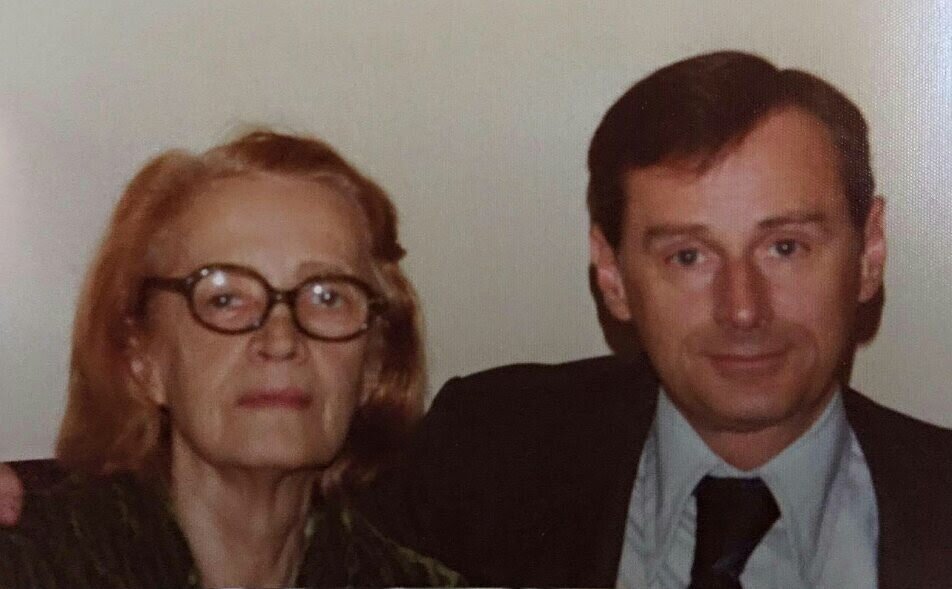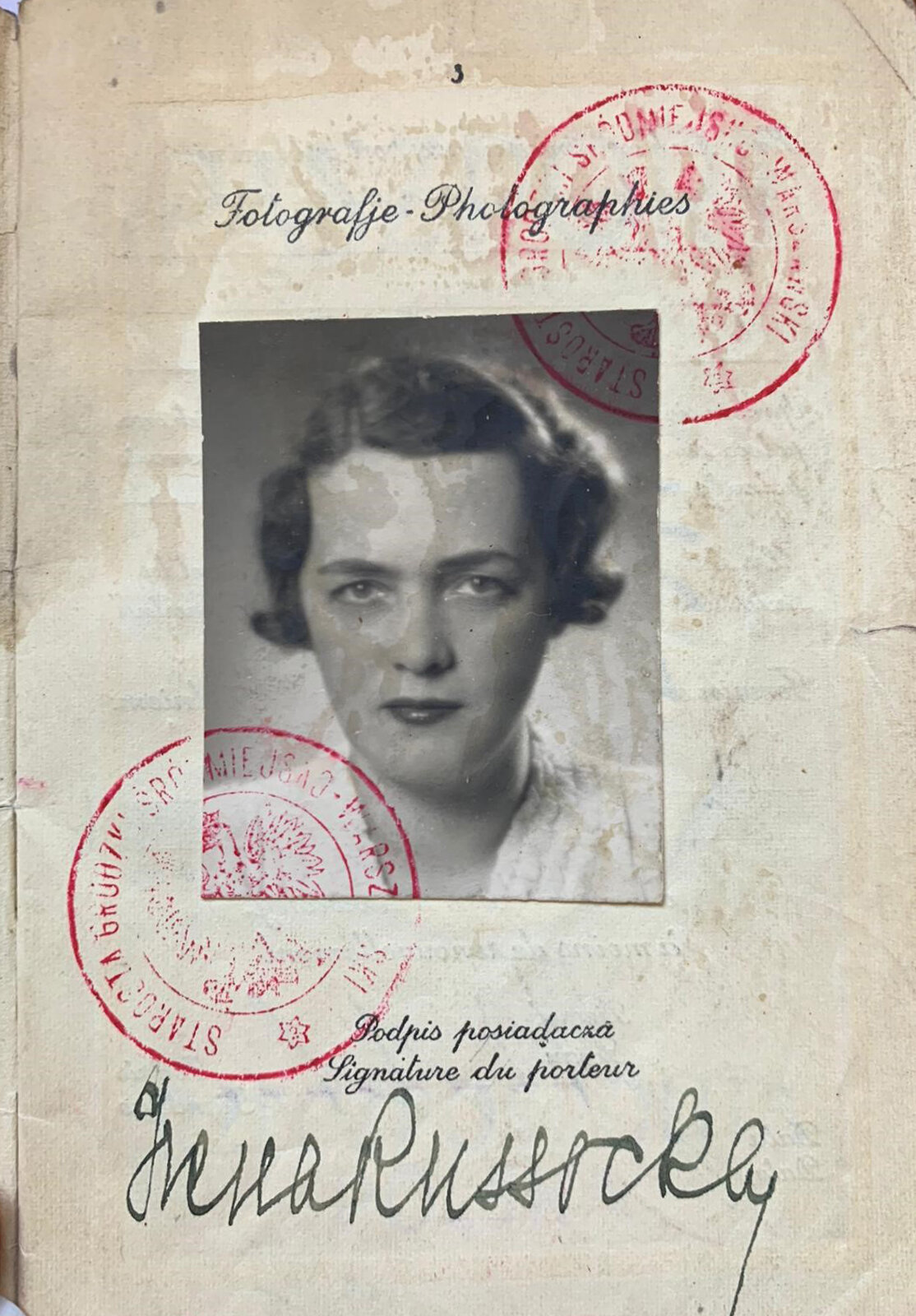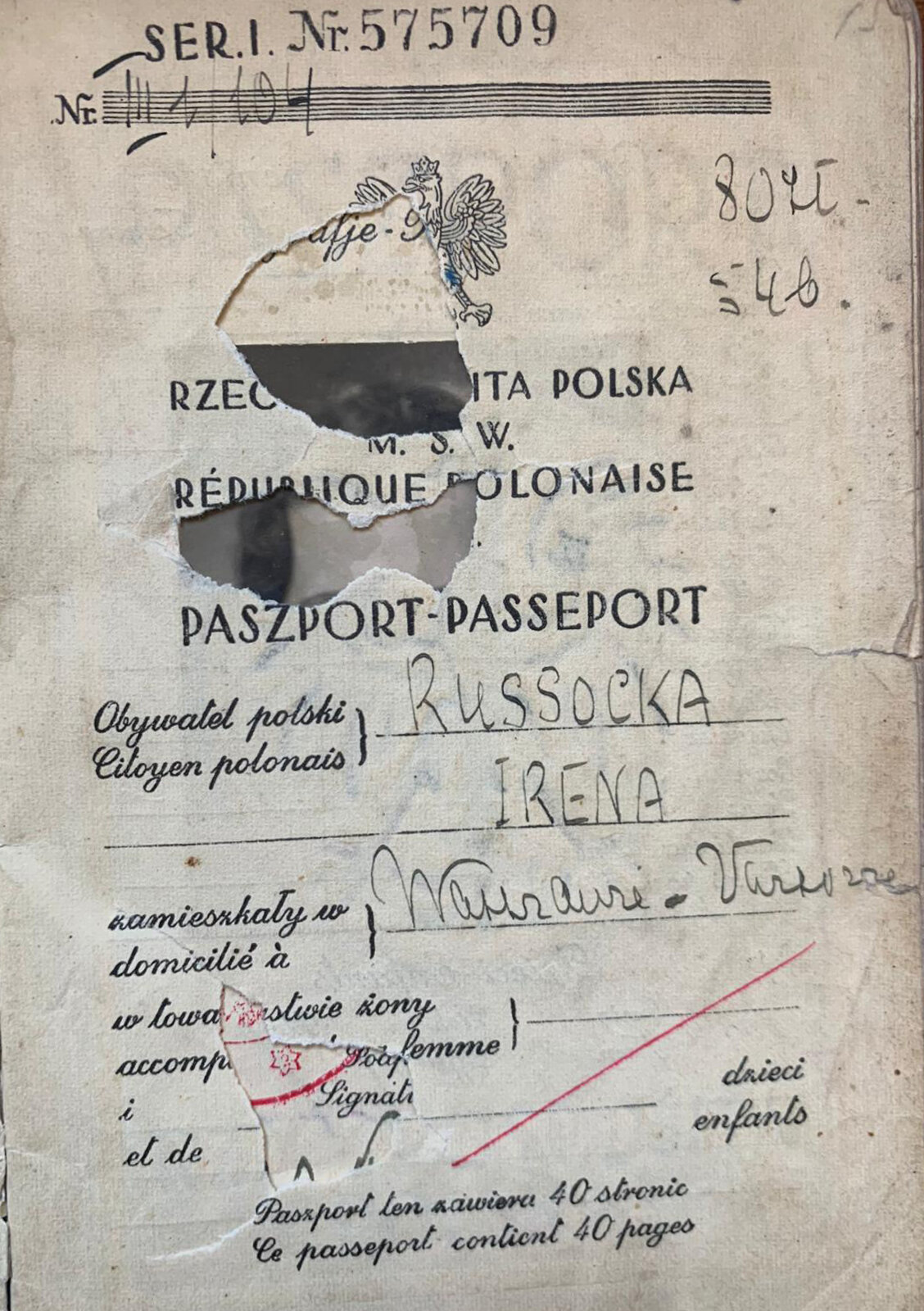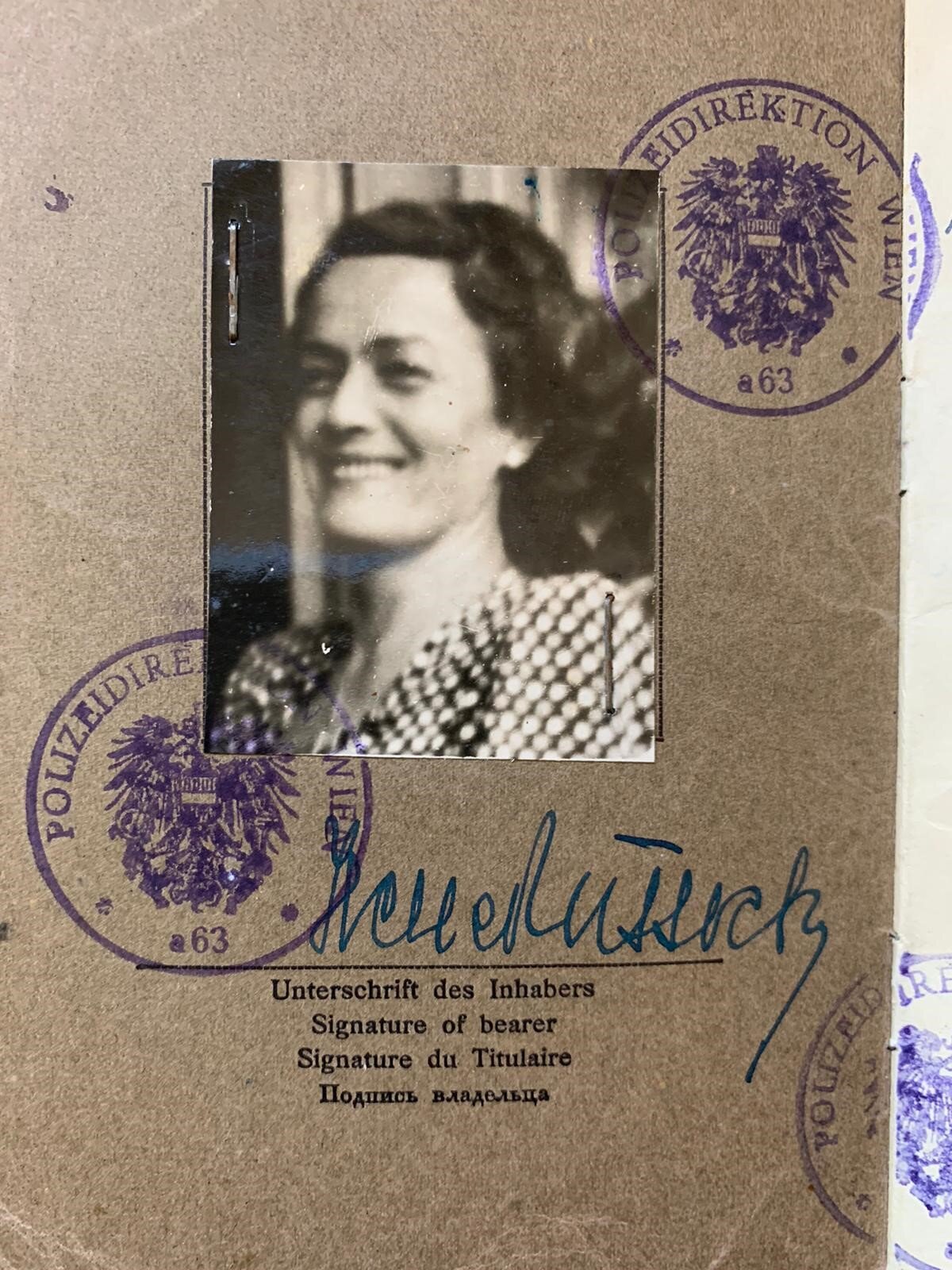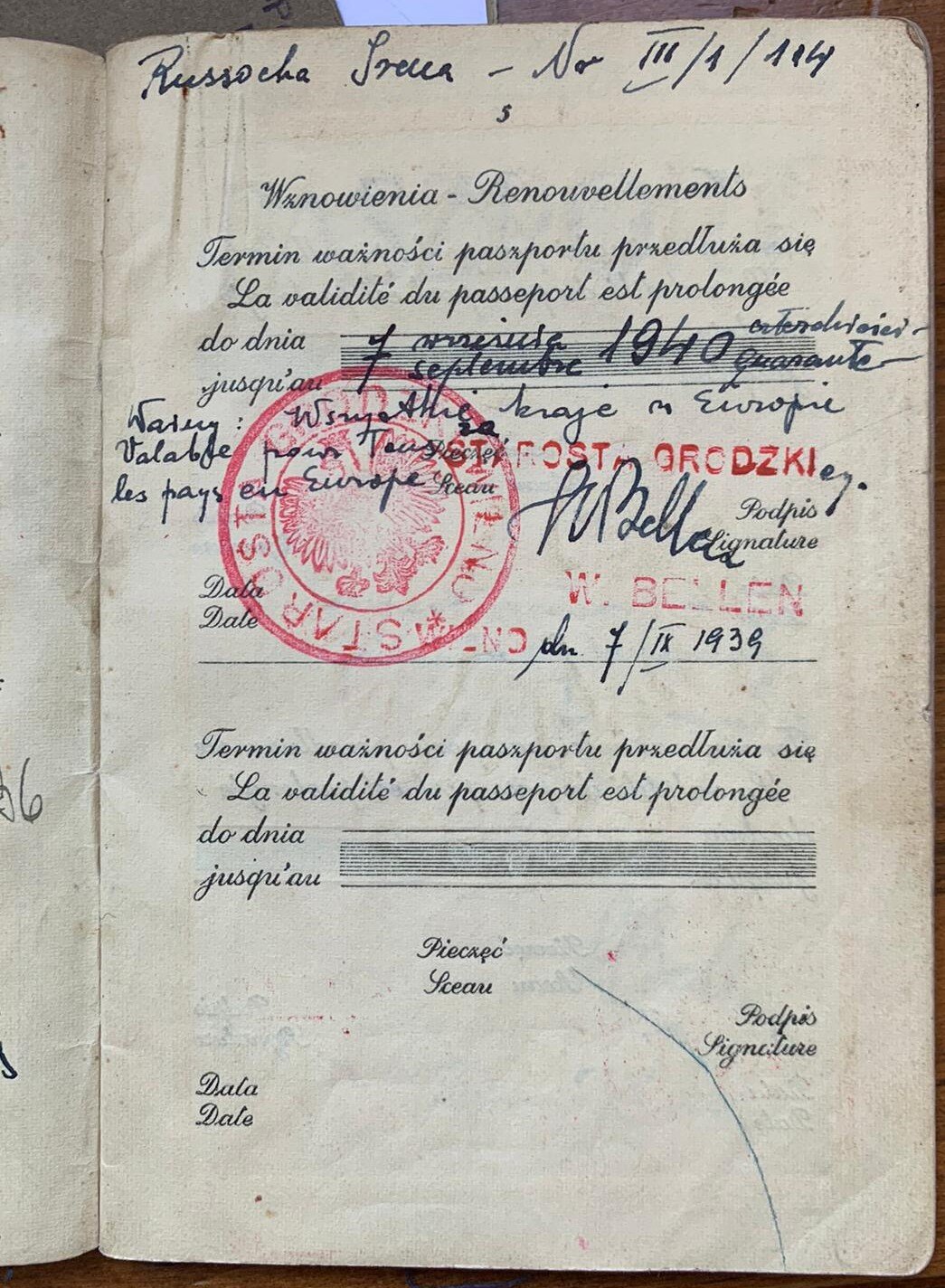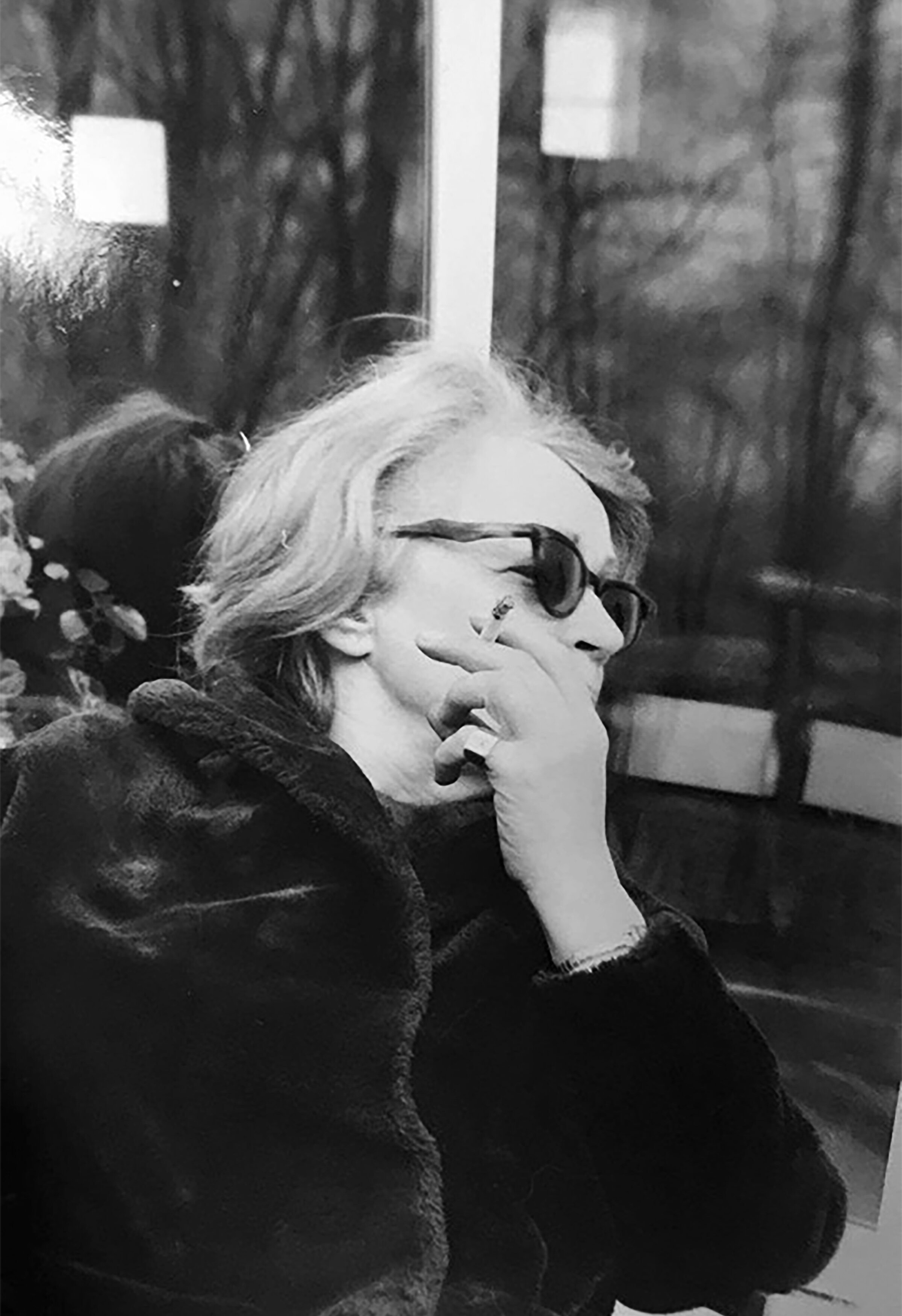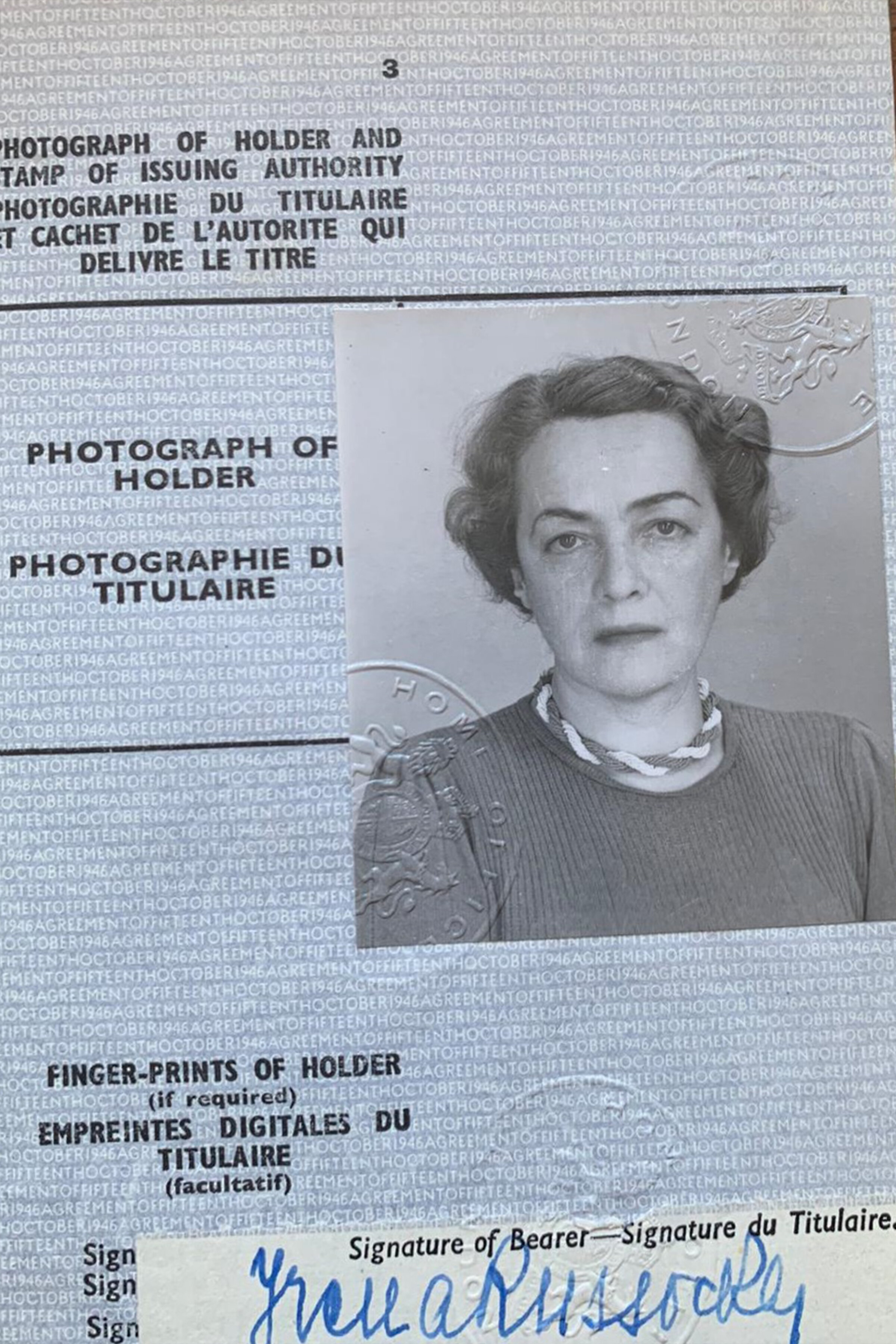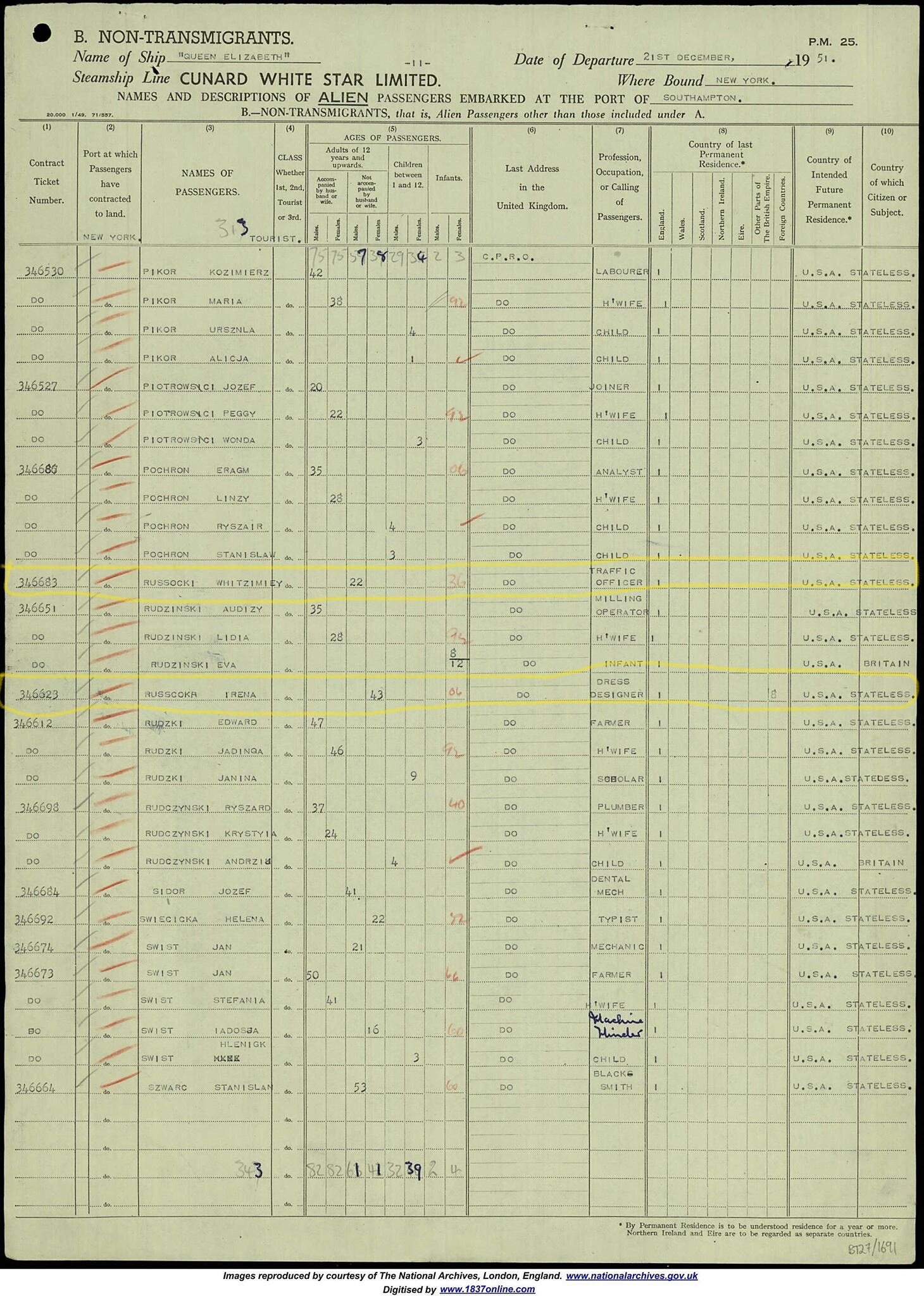Countess Irena Russocka (Rothenberg)
Irena Russocka with her son, Wlodzimierz (James) Russocki in Poland, early 1930s
Irena Russocka was born Roza Rothenberg in Galicia, (a region in the Austro-Hungarian Empire) to Pinkas Rothenberg and Feige Probst in 1900. Her birth was recorded in the Jewish Registry in the town of Stryj. She was blonde, beautiful and spoke several languages fluently including German; it is believed these factors, and a claim to Polish aristocracy contributed to her ability to escape detection during the war.
Irena adopted the noble name Solomirecka to hide her identity before her marriage to Count Zygmunt Russocki in 1928, after which she became a Countess, moving in the highest social circles. During WW2 Irena worked with the Armia Krajowa (Resistance Movement) and hid a small Jewish child in her apartment in Warsaw. She was arrested with her 13-year-old son by the Gestapo in March 1943. James (Wlodzimierz) Russocki believed his mother had been sent to Dachau concentration camp, however records show she registered in Vienna a week after her arrest, where she remained for the rest of the war. Her work there is unknown.
In 1951 Stateless Irena emigrated to the USA with James, never returning to Europe. She died in 1978, her family believing she was 70 at the time of her death (she continually deducted years from her true age). Throughout her life she gave little away regarding her background; although James was interred in Mauthausen Concentration Camp neither he, nor the Germans knew his mother was Jewish. This undoubtedly saved his life.
Irena and unknown officer. San Marco, Venice.
A great deal of mystery surrounds Irena and much work has been undertaken to trace her remarkable story. Tomasz Lenczewski, Polish heraldist, genealogist and canonist (http://tomaszlenczewski.pl/) has included details of her life in his publications and with the assistance of others, work continues to uncover further information. Despite their close relationship as mother and son (in common with so many survivors) Irena and James never spoke to each other about their wartime experiences; the trauma they internalized profoundly impacted their ability to openly revisit the atrocities they both witnessed and endured.
For further information, please contact jenniemilne67@gmail.com

